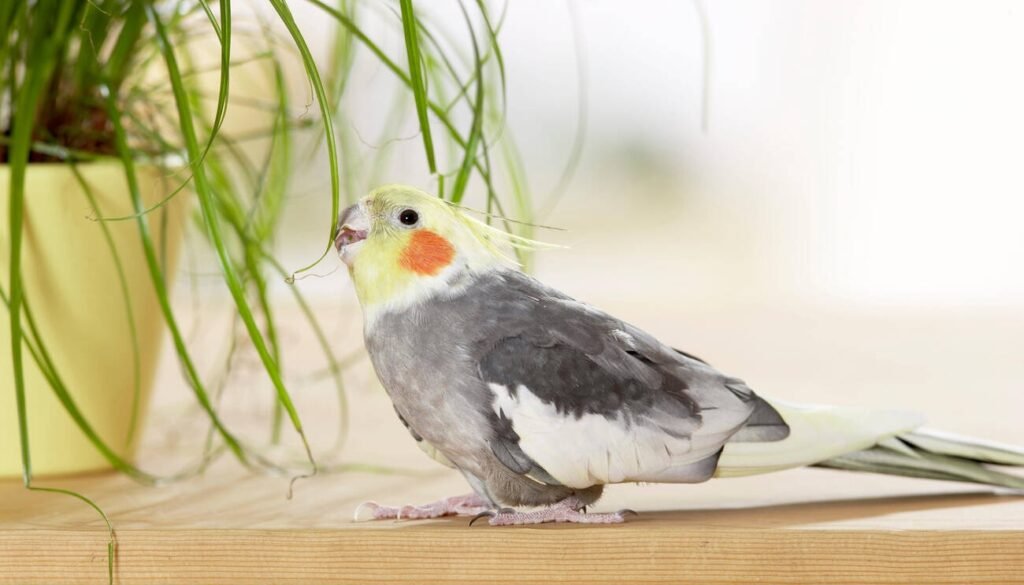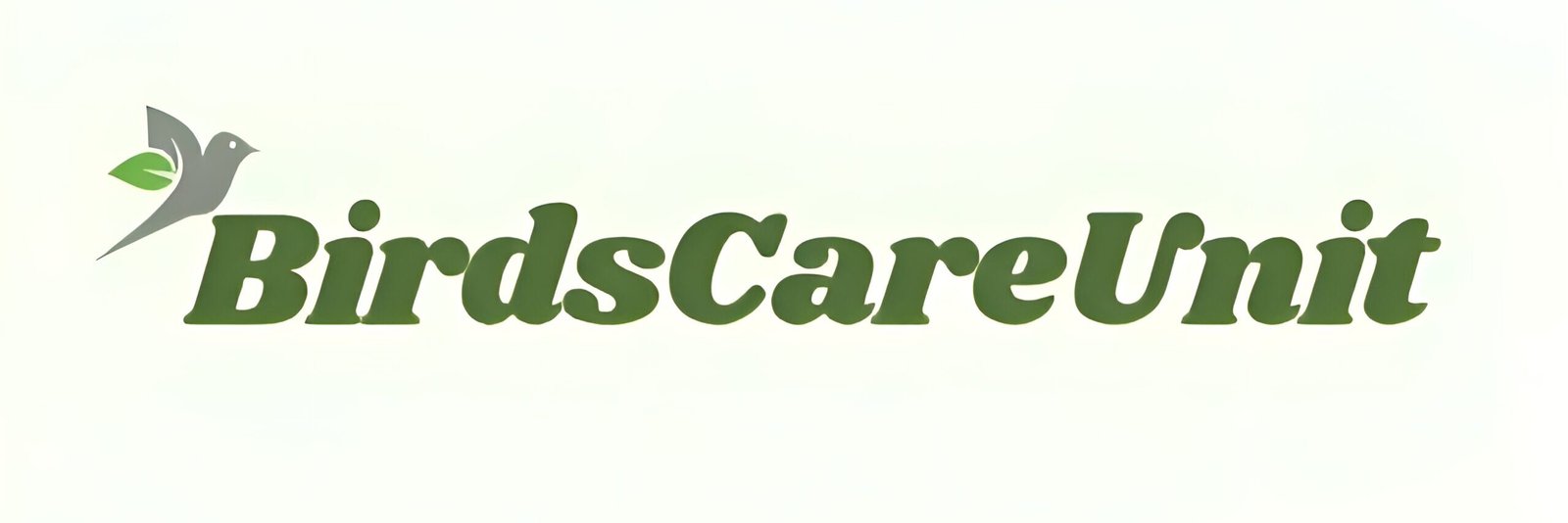What to Do If My Cockatiel Isn’t Eating?

As a devoted bird breeder with years of experience, I’ve had the pleasure of working with various species, including lovebirds, parrots, parakeets, and doves. However, my heart belongs to cockatiels. Their friendly nature, playful antics, and striking appearance make them wonderful companions. Given my commitment to their health and well-being, I’ve decided to focus on building a larger farm specifically for cockatiels. A crucial part of this journey is understanding their dietary needs and what to do if they suddenly stop eating.
In this extensive guide, we’ll delve deep into the steps you should take if your cockatiel isn’t eating, how to assess their health, and the preventive measures you can implement to ensure a thriving environment for your feathered friends.
Understanding the Importance of Diet in Cockatiels
Why Nutrition Matters
Cockatiels require a balanced diet rich in nutrients, vitamins, and minerals to thrive. A well-rounded diet supports their immune system, enhances feather quality, and promotes overall health. It’s vital to recognize that cockatiels have different dietary needs compared to other birds, and feeding them appropriately can prevent many health issues.
Common Dietary Components
High-Quality Pellets:
- Pellets should form the foundation of a cockatiel’s diet. They provide a balanced mix of nutrients and are specifically formulated to meet the needs of cockatiels.
Seeds:
- While seeds are often favored by cockatiels, they should not be the sole food source. Seeds can be high in fat and low in essential nutrients.
Fresh Fruits and Vegetables:
- These are critical for providing vitamins and hydration. Common choices include leafy greens, carrots, apples, and berries.
Sprouted Seeds and Grains:
- Sprouting seeds can enhance their nutritional value and make them easier to digest.
Recognizing the Signs of Dietary Issues
Before addressing what to do if your cockatiel isn’t eating, it’s essential to identify signs that indicate dietary problems:
- Weight Loss: Monitor your cockatiel’s weight regularly. Sudden weight loss can be alarming.
- Changes in Droppings: Abnormal droppings can indicate dietary imbalances or health issues.
- Fluffed Feathers: This can be a sign that your bird is unwell or stressed.
- Lethargy: Reduced energy levels or unwillingness to engage in normal activities can suggest health problems.
Assessing Your Cockatiel’s Health
Observing Behavioral Changes
Cockatiels are skilled at hiding illness, so paying attention to subtle behavioral changes is crucial:
- Social Interaction: If your cockatiel is less social than usual, it might be a sign of discomfort or illness.
- Vocalization: A sudden decrease in vocalization can indicate that something is wrong.
Physical Examination
Performing a basic physical check can help identify potential health issues:
- Feather Condition: Examine the feathers for signs of molting or damage.
- Beak and Feet: Ensure the beak is healthy and not overgrown. Check the feet for any abnormalities.
- Body Condition: Gently palpate the body to assess muscle tone and overall condition.
Regular Health Check-Ups
Regular visits to an avian veterinarian are crucial. They can provide vaccinations, health assessments, and guidance on nutrition tailored to your bird’s specific needs.
Creating an Optimal Environment
Designing a Stress-Free Space
A comfortable and stimulating environment is vital for your cockatiel’s well-being:
- Cage Location: Position the cage in a quiet area away from drafts, loud noises, and direct sunlight for prolonged periods.
- Cage Size: Ensure the cage is spacious enough for your cockatiel to move freely and spread its wings.
Enrichment for Mental Stimulation
Cockatiels require mental stimulation to prevent boredom, which can lead to behavioral problems:
- Variety of Perches: Provide perches of varying diameters and materials to promote foot health.
- Toys: Incorporate toys that encourage foraging, climbing, and problem-solving. Rotate these toys regularly to keep your cockatiel engaged.
Optimizing Cage Conditions
- Proper Lighting: Ensure your cockatiel receives natural sunlight or full-spectrum lighting to maintain their circadian rhythms and overall health.
- Temperature Control: Maintain a comfortable temperature range of 65°F to 80°F (18°C to 27°C). Avoid placing the cage near heat sources or air conditioning vents.
Balanced Nutrition Is Key
Essential Components of a Cockatiel Diet
A well-rounded diet will ensure your cockatiel remains healthy:
Pellets: Choose high-quality pellets specifically designed for cockatiels. These should comprise about 50-70% of their daily diet.
Fruits and Vegetables: Offer a variety of fresh produce daily. Some safe options include:
- Leafy Greens: Spinach, kale, and romaine lettuce.
- Root Vegetables: Carrots and sweet potatoes.
- Fruits: Apples (without seeds), bananas, and berries.
Seeds: While seeds should only be a small part of the diet, they can be a treat. Opt for seed mixes that include a variety of seeds.
Nuts: Unsalted nuts can be given in moderation as they are high in fat but can also provide essential nutrients.
Sprouted Seeds: Sprouting increases nutritional value and digestibility. Consider offering sprouted millet and sunflower seeds.
Experimenting with Different Foods
Cockatiels can be picky eaters. If your cockatiel is not eating:
- Change Food Types: Introduce different brands or types of pellets and seeds.
- Fresh Foods: Present fruits and vegetables in various forms (sliced, whole, or pureed) to see what they prefer.
- Warm Food: Occasionally, warming fresh foods can make them more appealing.
Monitoring Eating Habits
Keeping Track of Consumption
Monitoring your cockatiel’s eating habits is vital for detecting health issues early:
- Daily Tracking: Observe how much food and water they consume daily.
- Observe Changes: Any decrease in appetite or water intake should prompt immediate attention.
Importance of Hydration
Always ensure fresh, clean water is available. Dehydration can quickly become a serious issue, especially if a bird isn’t eating. Change the water daily and consider using a water bottle to prevent contamination.
Encouraging Healthy Eating Habits
Making Mealtime a Bonding Experience
Cockatiels are social creatures and enjoy companionship during feeding. Here are some tips to encourage healthy eating:
- Hand-Feeding: Offering food by hand can stimulate their appetite and strengthen your bond.
- Interactive Feeding Toys: Use toys that dispense food to make mealtime engaging.
Understanding Food Preferences
Each cockatiel has unique preferences. Understanding these can help ensure they get the nutrition they need:
- Experiment with Flavors: Offer different fruits and vegetables to see which they enjoy most.
- Textural Variety: Incorporate a mix of soft and crunchy foods to cater to their preferences.
Seeking Veterinary Care
When to Consult a Veterinarian
Despite your best efforts, your cockatiel may still experience health issues. Here’s when to seek veterinary assistance:
- Signs of Illness: If your cockatiel shows any signs of illness or refuses to eat for more than a day, consult an avian veterinarian immediately.
- Routine Health Checks: Schedule regular vet visits to monitor your bird’s health and dietary needs.
Finding the Right Avian Veterinarian
Choosing a veterinarian experienced in avian medicine is crucial. They should be knowledgeable about the specific needs of cockatiels and able to provide tailored advice on diet and care.
Advanced Tips for Cockatiel Breeders
Comprehensive Health Assessment
Beyond regular observation, delve deeper into your cockatiel’s well-being:
- Behavioral Cues: Learn to interpret subtle cues such as crest position or vocalizations, which can indicate emotional states.
- Physical Health: Regularly inspect their feathers, beak, and feet for signs of health issues.
Creating an Enriching Environment
Transform your cockatiel’s cage into a sanctuary:
- Natural Elements: Use natural wood perches, and introduce safe plants to mimic their natural habitat.
- Enrichment Activities: Regularly change the layout of toys and perches to keep their environment stimulating.
Maintaining Hygiene
Good hygiene practices are essential for preventing illness:
- Regular Cleaning: Clean the cage, food dishes, and toys regularly to minimize bacteria and parasite buildup.
- Fresh Food Storage: Store food in airtight containers to keep it fresh and avoid contamination.
Embracing Holistic Wellness
Explore natural supplements that can support your cockatiel’s overall health:
- Probiotics: Consult your veterinarian about safe probiotic options to support digestion.
- Herbal Remedies: Discuss herbal supplements that may promote general well-being.
Nurturing Bonds Through Socialization
Building a strong bond with your cockatiel enhances their emotional health:
- Positive Reinforcement: Use treats and praise to encourage desired behaviors and strengthen your relationship.
- Training Sessions: Engage in regular training to stimulate their minds and encourage social interaction.
Preventive Measures for Optimal Health
Implementing preventive measures can significantly enhance your cockatiel’s well-being:
- Regular Grooming: Regularly trim nails and beaks to prevent discomfort.
- Exercise Opportunities: Encourage flight and physical activity to maintain fitness levels.
Honoring Natural Behaviors
Respect and encourage your cockatiel’s natural instincts:
- Foraging Opportunities: Provide foraging toys that mimic natural foraging behavior, enhancing mental stimulation.
- Vocalization: Allow your cockatiel to express itself through vocalization, as this is a natural and healthy behavior.
Conclusion
Ensuring the health and happiness of your cockatiel involves understanding their unique needs, from diet to environment and socialization. By implementing these strategies, you can create a thriving home for your feathered friends, making their well-being a priority.
As you continue your journey as a cockatiel breeder, remember that each bird is unique and may require tailored approaches. Your dedication and love will foster a rewarding relationship, ensuring that your cockatiels thrive and bring joy to your life for years to come.


